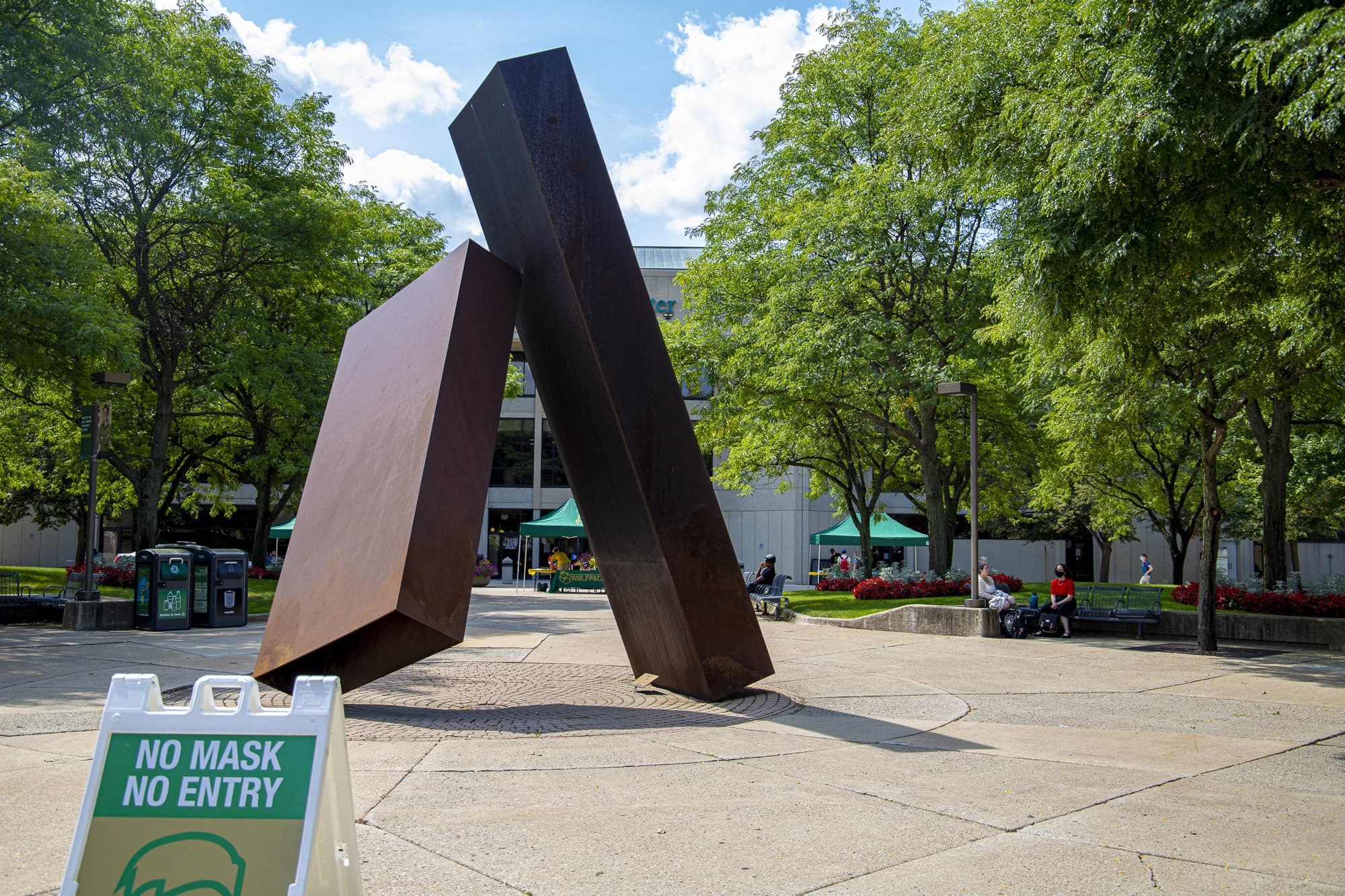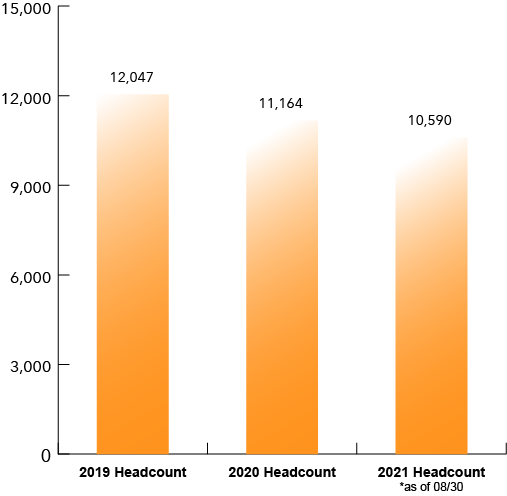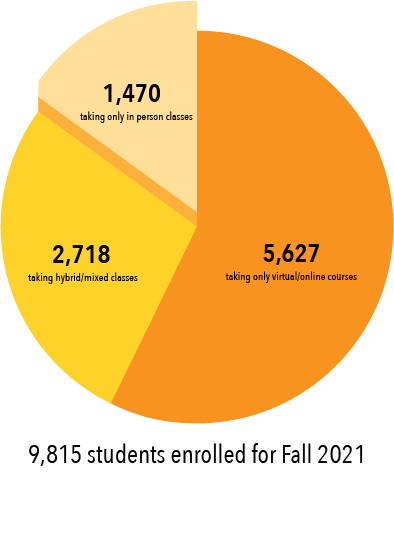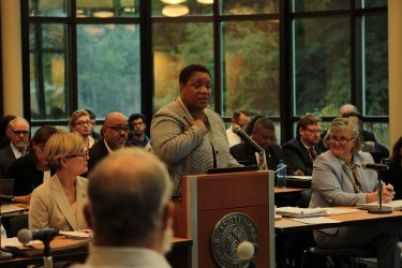by DOINA PLOP
Staff Writer
The 2021 fall semester begins with 140 percent more in-person classes offered compared to the fall of 2020, when the COVID-19 pandemic pushed most learning online.
As of Aug. 30, students can choose among 846 in-person sections compared to the 353 offered last fall. According to Linda Blakey, executive vice president of student and academic services, more sections may be added later in the semester.
According to college officials, as of Aug. 30, the student headcount and the credit hours were respectively 10,590 and 89,997. The headcount is half percent higher compared to fall 2020.
“Students are still rushing in,” said Julie Kissel, English Instructor and president of the faculty union. Therefore, the enrollment numbers are subject to change. Enrollment matters because it can affect tuition and how frequently particular classes are offered.
Due to the COVID-19 pandemic, WCC has been continuously implementing adjustments in the class delivery methods. For this semester, “the goal was to have a third of classes in-person, a third online, and a third virtual,” said Blakey.
According to Blakey, as of Aug. 23, 9,815 students enrolled for the fall semester; 5,627 students registered exclusively in virtual and online classes; 1,470 registered for in-person classes only; and 2,718 will attend mixed-mode classes (online or virtual and in-person).
WCC has offered online, virtual, and mixed-mode class options since the start of the pandemic. However, in the last two years, most courses took place remotely unless they featured a hands-on component. This is the first semester, after the beginning of the COVID-19 pandemic, that so many students are back on campus.
The fall 2021 in-person classes range from general education courses, like English and math, to nursing, automotive, and welding courses.
WCC froze again tuition for in-district students and overall offers some of the lowest tuition in Michigan.
What’s next?
It is not clear yet if the number of in-person classes will increase for the winter semester.
“There are more variables to look at than there have been in the past,” said Kimberly M. Hurns, executive vice president for instruction and academic affairs. “We are making the best decision we can for the college, our students, staff, and faculty.”
Kissel shared Hurns’ sentiment. “We made certain that everyone is safe for whatever setting they are going to be in,” said Kissel. Instructors had several faculty meetings to decide what’s best for their courses and students.
Most likely, WCC will keep offering virtual classes as one of the online options. According to Hurns, the virtual format has been successful. It meets students’ needs, helps them take more classes, be more flexible, and successful.





